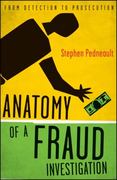Question
1. 'The most we can say about the Demand Curve is that it slopes down unless it slopes up.' Discuss. Examination questions and answer notes



1. 'The most we can say about the Demand Curve is that it slopes down
unless it slopes up.' Discuss.
Examination questions and answer notes 333
2. Explain the determination of the optimal price and output combination in a situation of monopolistic competition. Use the resulting
equilibrium to illustrate the statement that 'production inefficiency is
a necessary price to pay for product variety'. Comment on this
statement.
3. Assess the contribution of business games to the study of decision making processes, illustrating your answer by reference to one
business game with which you are familiar.
4. 'Given that the future is unknown, the best we can do is to estimate
the likelihood of future events and then use expected profit as the
decision criterion.' Discuss.
5. The senior partner in a local accountancy firm is concerned about the
error rate amongst assessments issued by her office. A careful check
over the past few years enables her to estimate that the error rate has
the following probability distribution:
Error rate Probability
0.05 0.25
0.10 0.35
0.15 0.25
0.20 0.15
Each error costs 40 because of the labor time involved in reassessment. Her firm is just entering the assessment 'season', and is
expected to perform 500 assessments over the next few months.
One way to reduce the error rate is to send all staff to a one-day
training course at the local university- 'Precision in Assessment' . The
university claims this would ensure an error rate of 0.05, but she
considers that an error rate of 0.10 would be equally likely.
The course fee is 700 for all her staff, whilst lost profit from one
day's work missed would be 500. Advise her on whether to send staff
on the course or not.
A careful check of that day's output shows that in ten assessments,
two contained errors. Use this information to update the error rate
probability distribution and hence determine whether your advice
needs amendment.
6. 'The fitting of mathematical trend curves is by far the easiest and
cheapest method of forecasting long-run changes in product demand,
and is likely to be just as reliable as any alternative method. ' Discuss.
7. An engineering firm has applied for patents on two new products and
has just learned that only one application has been successful.
Compare and contrast the optimal pricing and promotional strategies
for each of these new products.
8. Critically examine the view that advertising can be . seen as the
Managerial Economics
provision of information valuable to the consumer, for which the
consumer will be prepared to pay extra.
9. (a) Briefly analyze the effect of an increase in interest rates on the
investment portfolio of a profit maximizing holding company.
(b) The University is contemplating building a new squash court,
adjacent to its new hall of residence. To secure local support for
its planning application, the University has offered to open the
court to local players at student rates for the first five years.
After five years, the University can charge what it likes for the
courts. Consequently, the University estimates that net revenue
from the court will be 1000 for each of the first five years, rising
by 10% (compounded) in each of the sixth to tenth years. In the
eleventh and twelfth years rising maintenance costs will completely offset rising fees so that net revenue stays at tenth year
level. At the end of the twelfth year, the site is due for
redevelopment.
The cost of building the squash court is estimated to be 6000.
To finance the court, the University must draw from its reserves, currently earning 12% in Local Authority Bonds. Selling
sufficient bonds would involve legal and administrative costs of
320. Advise the University on the viability of the project. What
other factors should the University take into account?
10. A firm has an annual demand of S units for a good whose purchase
cost is c per unit. Each order costs a to place, and the cost of
holding stock is b% of the average value of stock per annum.
Determine the optimal order quantity.
A local firm uses 2000 units of a particular component each year. The
component has a purchase price of 4/unit, while the cost of holding
stock is estimated at 20% of the average stock value. If the cost of
placing each order is 12.50, find the optimal number of orders placed
each year. Suppose the component supplier offers a discount of 2%
on the purchase price if orders are placed in units of 1000. Is the
discount worth accepting?
Suppose that instead of a single figure you had been given a
probability distribution for the number of units used each year.
Indicate the effect on stock policy.




Step by Step Solution
There are 3 Steps involved in it
Step: 1

Get Instant Access to Expert-Tailored Solutions
See step-by-step solutions with expert insights and AI powered tools for academic success
Step: 2

Step: 3

Ace Your Homework with AI
Get the answers you need in no time with our AI-driven, step-by-step assistance
Get Started


